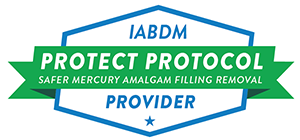How to Prevent Root Canal

Have you ever heard about a root canal? Have you undergone this procedure? If yes, then you know that you need to be extra careful with that tooth since there are potential risks and complications associated with the procedure. If you have never had a root canal, then let’s keep it that way! In this blog, we will talk about how you can prevent the need for a root canal procedure and possible alternatives.
What is a Root Canal?
A root canal is a procedure dentists do when the inside of a tooth either causes pain or gets infected. Inside of each tooth, there's an internal portion called the pulp. It is the tooth's core, with nerves, blood vessels and even a lymphatic system. If the pulp gets exposed to bacteria or trauma, the blood vessels inside expand in an attempt to heal the tooth by delivering nutrients to defend itself from the bacteria or trauma. When that happens, the vessels push onto the nerve bundles and can cause a lot of pain. The blood vessels can also expand so much that it strangles itself and the tooth eventually dies. Untreated tooth death is commonly accompanied with a deeper infection called an abscess.
How a root canal procedure is performed
The root canal process begins with the dentist accessing the pulp chamber by creating an opening through the tooth's crown. Once inside, the infected or damaged pulp is removed using specialized instruments, and the root canals are meticulously “cleaned” and shaped in an attempt to eliminate bacteria and debris. After disinfecting the root canal system usually with bleach, it is filled with a material to seal off the space in attempts to prevent reinfection. Finally, the tooth is restored with a filling or crown as an effort to protect its structure and functionality. This procedure is described as removing infection and preserving the natural tooth; however, this is not the case, and is in fact a procedure that leaves a dead organ in the body, thus commonly leading to more complicated issues.
Root canal leaves behind a dead organ
A root canal leaves a 'dead organ' in the body, meaning this procedure removes the living tissue from inside the tooth, known as the pulp. However, once this tissue is removed, the tooth is considered 'non-vital' because it no longer contains this living tissue. While the root canal removes the living part of the tooth, the tooth itself remains in the mouth. No other form of medicine leaves dead tissue in the body, as this is the perfect area for bacteria to fester without telling signs of this reinfection, due to the fact that the tooth no longer has its nerve and living parts.
Dangers of Root Canal
Root canals, commonly performed to address infected or damaged teeth, are susceptible to reinfection. The incomplete removal of infection, which may lead to persistent or recurrent bacterial presence within the tooth's root canals creates the possibility of infection spreading beyond the tooth, causing complications in surrounding tissues or entering the bloodstream. Abscess formation, characterized by painful pus-filled collections, can also occur in root canal-treated teeth. Moreover, accessing the tooth's root canals can inadvertently damage nearby tissues, nerves, or blood vessels, resulting in discomfort or sensory disturbances. Root canal-treated teeth may become more susceptible to fractures over time, particularly if they lack sufficient support from dental restorations.
The International Academy of Oral Medicine & Toxicology
The International Academy of Oral Medicine & Toxicology (IAOMT) has voiced concerns regarding the potential dangers associated with root canal treatment. According to the IAOMT, traditional root canal procedures pose risks due to the use of materials that could have toxic effects on the body. These concerns are based on research suggesting that root canal-treated teeth may harbor bacteria and toxins, contributing to systemic health issues.
There are worries about the inability to completely sterilize the root canal system, leading to persistent infection or reinfection. The IAOMT advocates for a cautious approach to endodontic therapy and encourages exploration of alternative materials and techniques that prioritize biocompatibility and patient safety.
Read more here: https://iaomt.org/tag/endodontics/
Dr. Weston Price
One of the most prominent dentists in history, Dr. Weston Price, disclosed root canal toxicity as far back as the early 20th century. He delved into the hazards posed by root canals, particularly the presence of bacteria in the dentin tubules and accessory canals, which may lead to systemic infections and autoimmune reactions.
Read more here: https://www.westonaprice.org/health-topics/dentistry/root-canal-dangers/#gsc.tab=0
Root Canal Prevention and Alternatives
Going to a biomimetically-certified functional dentist
To prevent the need for a root canal, consider visiting a biomimetic dentist who specializes in conservative dental care. These dentists prioritize preserving natural tooth structure and function, reducing the likelihood of invasive treatments like root canals. enlightenDENTAL has had the opportunity to save dozens of teeth that were previously treatment planned for root canals with biomimetic fillings, inlays, or onlays!
Additionally, we highly recommend routine care with a functional dentist, preferably one with a CBCT. A Cone Beam scan is able to locate hidden infections, especially those commonly found around a root canal. The common panographic imaging that dentists have do not always have the ability to locate this. If you're interested in exploring biomimetic dentistry further, schedule a consultation with enlightenDENTAL today to discover how their approach can benefit your oral health journey!
Focusing on nutrition
You can also focus on nutrition, following principles such as those outlined in the Dental Diet by Dr Steven Lin or Weston Price philosophy. These approaches emphasize consuming nutrient-dense foods that support dental health and overall well-being. Foods rich in vitamins, minerals, and antioxidants can help strengthen teeth and gums, reducing the risk of decay and infection that may lead to root canal treatment. Staying hydrated ensures proper salivary pH for a healthy oral microbiome. By prioritizing a dental-friendly diet, you can support the health of your teeth and gums, potentially reducing the need for invasive dental procedures like root canals in the future.
Focusing on oral hygiene regimen
It's essential to focus on maintaining a diligent oral hygiene regimen. This includes brushing your teeth thoroughly at least twice a day with fluoride-free, hydroxyapatite toothpaste to remove plaque and bacteria that can lead to tooth decay and infection. Don't forget to floss daily to clean between teeth and remove plaque and food particles from areas that your toothbrush can't reach. Regular dental check-ups and cleanings with your dentist are also crucial for identifying and addressing any potential issues early on before they progress to the point of needing a root canal. By focusing on your oral hygiene regimen, you can significantly reduce the risk of developing dental problems that may require root canal treatment.
What happens when it is not possible to save a tooth?
Sometimes, infection has spread too deeply for a tooth to be saved with biomimetic dentistry and a biological extraction would be recommended. This treatment is highly advised for this level of infection in order to detox the body. At our practice, a lot goes into a biological extraction and the conversation involving the replacement of the tooth.
The removal of the infection is the major focus, as we involve laser therapy, ozone water and gas therapy, Platelet Rich Fibrin, and so much more. This allows the body to heal and reestablish a certain level of health prior to potential replacement- which could be a removable metal-free partial denture, a bridge that removes minimal tooth structure during placement, or a (the best option) biocompatible zirconia implant. This is all information that requires an article of its own!
At enlightenDENTAL, your dental care is not only about restoring smiles but also about fostering an environment where safety and well-being take center stage. As the dental field evolves, we remain steadfast in our mission to provide enlightened dental care, setting the standard for a future where optimal oral health is effortlessly intertwined with the highest levels of safety and innovation.
Make the choice for a safer, healthier tomorrow – choose enlightenDENTAL for your general dental care and prevention and treatment of root canals!



.png)


